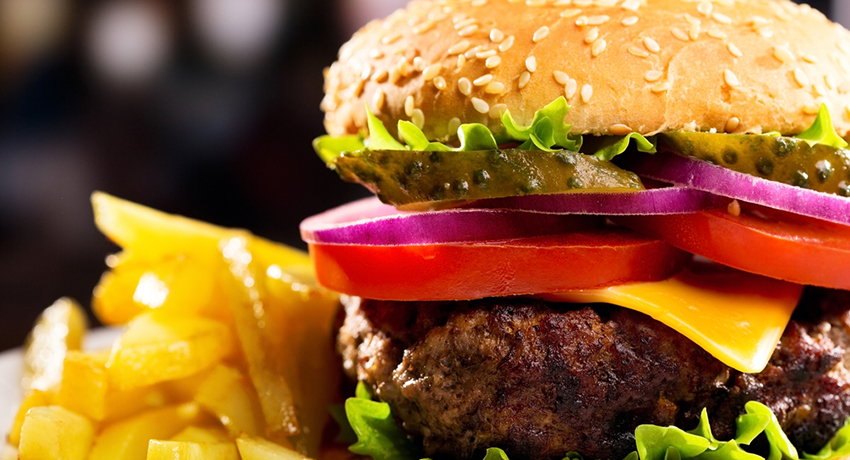Eating Burgers From Restaurants Increases Obesity Risk, Shocking Study Says

Burger and fries image via shutterstock
Burgers have certainly come a long way in the past 10 years. At one time, burgers were mainly for fast-food restaurants or backyard cookouts, but now the booming culinary treat that can cost $15 to $20 at some local restaurants. There are even large events dedicated to the delicacy. But one thing burgers will never be is healthy.
A few studies have shown that frequently eating out is associated with greater weight gain than eating at home, but the research has never focused on specific types of foods eaten at fast-food and full service restaurants. A research team from Boston University’s Slone Epidemiology Center examined the association between consumption of foods from restaurants and risk of becoming obese in a large study of African American women. The results, published online in the journal Ethnicity & Disease, provides evidence that frequently eating hamburgers from restaurants is associated with higher risk of obesity. Higher intake of sugar-sweetened soft drinks, which are commonly consumed together with restaurant foods, was also independently associated with obesity risk.
Let’s all say a collective, “duh!”
We know burgers and soda will not help make you thin, and both contribute to a variety of ailments from diabetes to heart disease. But there is something about seeing it on paper that makes it more real.
According to a report from Boston University, researchers examined the relationship of consumption of restaurant foods and sugar-sweetened soft drinks with risk of developing obesity, using data collected from the Black Women’s Health Study, an ongoing investigation of the health of 59,000 African American women that began in 1995. The women studied were not obese and had no history of cancer or cardiovascular disease at the start of follow-up. Diet was assessed twice (in 1995 and 2001) using validated questionnaires, and information on the participants’ weights was collected every two years from the study’s start until 2011.
The researchers found that women who ate burgers from restaurants at least twice a week were 26 percent more likely to become obese by the end of the study than those who rarely ate burgers, after controlling for many factors including overall diet quality and sugar-sweetened soft drink consumption. In addition, women who drank at least two sugar-sweetened soft drinks per day were 10 percent more likely to become obese than those who drank none, after controlling for overall diet quality and restaurant burger consumption.
The authors concluded that, “the identification of individual foods or beverages that are associated with weight gain provides a basis for specific and straightforward recommendations to help prevent obesity.”


